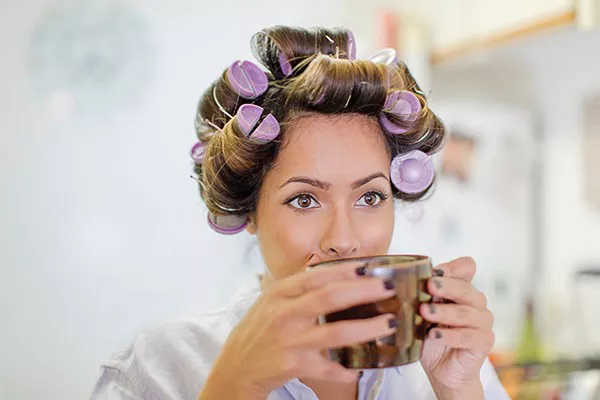I. Introduction to Scalp Health in Women
A healthy scalp is the foundation for vibrant and strong hair. For women, maintaining optimal scalp health is essential for preventing issues such as dandruff, itching, and hair loss. In this comprehensive guide, we’ll explore effective tips to promote a healthy scalp, ensuring that your hair remains beautiful and resilient.
Understanding the Importance of Scalp Health
Role in Hair Growth: The scalp is the environment where hair follicles reside. A healthy scalp provides the necessary conditions for robust hair growth and prevents common issues that can hinder the hair’s vitality.
Impact on Hair Appearance: A well-nourished scalp contributes to shinier, more manageable hair. Conversely, an unhealthy scalp can lead to dryness, flakiness, and hair that appears dull and lifeless.
II. Tips for Maintaining a Healthy Scalp in Women
1. Regular Washing with a Gentle Shampoo
Frequency: Wash your hair regularly, but not excessively. Aim for 2-3 times a week to remove excess oil and prevent product buildup.
Shampoo Choice: Use a gentle, sulfate-free shampoo that suits your hair type. Harsh chemicals can strip the scalp of its natural oils.
2. Balanced Diet for Scalp Nutrition
Nutrient-Rich Foods: Consume a balanced diet rich in vitamins and minerals, especially those crucial for hair health, such as vitamin E, iron, and omega-3 fatty acids.
Hydration: Drink an adequate amount of water to keep your body and scalp hydrated.
3. Scalp Massages for Circulation
Technique: Incorporate scalp massages into your routine to improve blood circulation. Use your fingertips to gently massage the scalp in circular motions.
Benefits: Enhanced circulation promotes nutrient delivery to the hair follicles and can relieve tension and stress.
4. Avoiding Tight Hairstyles
Traction Alopecia: Tight hairstyles, such as tight ponytails or braids, can lead to traction alopecia. Choose hairstyles that are gentle on the scalp to avoid unnecessary stress on the hair follicles.
5. Protection from Sun and Environmental Factors
Sunscreen: Apply sunscreen to the scalp when exposed to direct sunlight. The scalp is susceptible to sunburn, which can contribute to dryness and irritation.
Hats and Scarves: Protect your scalp from environmental elements by wearing hats or scarves in extreme weather conditions.
6. Selecting the Right Hair Products
Product Compatibility: Choose hair products that are suitable for your hair type and scalp condition. Avoid products containing harsh chemicals or allergens that may irritate the scalp.
Conditioner Application: Apply conditioner mainly to the lengths and ends of the hair, avoiding the scalp to prevent product buildup.
7. Regular Scalp Exfoliation
Exfoliation Products: Use a scalp exfoliator occasionally to remove dead skin cells and product buildup. Look for exfoliating products with ingredients like salicylic acid or natural exfoliants.
Caution: Avoid over-exfoliation, as it can lead to irritation. Follow product instructions and limit use to once or twice a month.
8. Managing Stress Levels
Stress and Hair Health: Chronic stress can contribute to scalp issues and hair loss. Incorporate stress management techniques such as meditation, yoga, or deep breathing exercises into your routine.
III. FAQs: Addressing Common Questions on Scalp Health
1. Can I Wash My Hair Daily for a Healthier Scalp?
Washing your hair daily may strip the scalp of natural oils, leading to dryness. Aim for 2-3 times a week, adjusting based on your hair type and scalp condition.
2. Are DIY Scalp Masks Effective?
DIY scalp masks with ingredients like aloe vera, coconut oil, or tea tree oil can be effective in promoting scalp health. However, ensure compatibility with your skin and hair type.
3. How Can I Identify the Right Shampoo for My Scalp?
Choose a shampoo based on your hair type and specific scalp needs. If dealing with dandruff or scalp sensitivity, opt for products designed to address these issues.
4. Is Scalp Massage Safe for Everyone?
Scalp massages are generally safe for everyone. However, individuals with certain scalp conditions or medical concerns should consult a healthcare professional before incorporating scalp massages into their routine.
5. Can Hormonal Changes Affect Scalp Health?
Hormonal changes, such as those during pregnancy or menopause, can impact scalp health. Adjust your hair care routine and consult with a healthcare provider if needed.
6. Are Expensive Hair Products Better for Scalp Health?
Expensive doesn’t always mean better. Look for products with quality ingredients suitable for your hair type. Sometimes, simpler formulations can be just as effective.
7. Can I Use Regular Body Sunscreen on My Scalp?
While body sunscreen may provide some protection, it’s advisable to use a sunscreen specifically formulated for the scalp. Look for lightweight, non-greasy formulations.
8. Is it Normal to Experience Itching After Scalp Exfoliation?
Mild itching after scalp exfoliation may occur, but persistent or severe itching could indicate an adverse reaction. Discontinue use and consult with a dermatologist if needed.
Conclusion: Nurturing Your Scalp for Healthy, Beautiful Hair
In conclusion, maintaining a healthy scalp is a holistic approach that involves proper cleansing, nourishment, and lifestyle habits. By incorporating these tips into your hair care routine and addressing specific scalp needs, you can nurture your scalp and promote the overall health and beauty of your hair. Regular attention to scalp health is an investment in maintaining vibrant and resilient hair for the long term.


